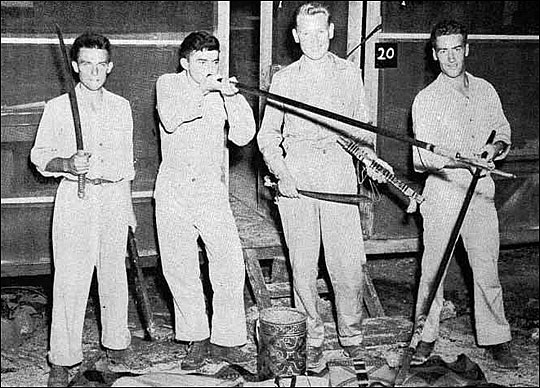Near the end of World War II, an American B24 bomber was shot down by the Japanese over North Borneo, but seven of the brave crew managed to parachute to safety and spent the rest of the war in the dense jungle. Borneo is the third largest and one of the least-inhabited islands in the world, where steep mountains, impossible trails, scant civilisation, vest-drenching humidity and rainy seasons that could drown a giraffe tend to dissuade even the most hardy of adventurers – so it couldn’t have been easy.
The name of the island is derived from the Sanskrit word Kalamanthana, which literally means ‘burning weather’ – the name really speaks for itself. I always thought it meant ‘ex-time’ – joke there for the Indonesian speakers among you. Interestingly, in English, Kalimantan refers to the Indonesian part of Borneo, but in Indonesian it refers to the whole island. The area is home to tropical diseases galore and an impressive collection of snakes and ugly insects ready to bite and infect or kill anyone too slow crossing their paths – constant caution is advised. The bomber boys also probably had some vague school-day recollections of The Wild Man of Borneo, so it was surely with some trepidation that they set up camp on their first night. Little did they know about the Dayak headhunters – if they had it is unlikely any of them would have closed their eyes even for one second that night. But, surprisingly, they needn’t have worried.
The Dayaks believed (and some people argue they still do) that taking the head of someone from a rival group and placing it on a pole in your living room could turn it into a spirit that brings good health and bountiful harvests. The purpose was never to decapitate a specific person or enemy as an act of war or vengeance. The ever-civilised British and Dutch outlawed head-hunting and brought in some good Christians to stamp it out once and for all, but it is always difficult to get the old folk to give up their quirky habits overnight, so it probably still went on for a while. In fact I’m sure to this day the occasional grandpa still gets caught trying to slip out of his bedroom window in the dead of night with a knife tucked in his shorts, looking for an easy cure when his hip’s playing up.
The seven airmen (plus four others who crashed in the forest nearby) ended up being cared for by the Dayak – heads intact – for the remainder of the war and did not suffer so much as a crafty snick while they were sleeping in the whole time they were there. Why? Because the Dayak are not stupid. They had been living under Japanese rule for more than three years, so when the Americans appeared their first question was “Who’s going to win the war?” and the verdict was universal; sooner or later the Japanese were going to get their botties smacked.
Keeping this in mind, the Dayaks didn’t want to have to explain where the obviously imported good luck charms had come from and decided to treat the airmen as respected guests. The story goes that the airmen behaved in a very modest and demure manner, too, and showed great respect for their hosts. I think I probably would have done the same thing in the circumstances.
For six months the Dayaks cared for the Americans in the mountains. They brought them food, clothing and herbal medicine and hid them from the Japanese long enough for them to be rescued. At one point, when Airman Jim Knoch was suffering a terrible malaria attack, the story goes that a Dayak woman chewed up his food for him and fed him like a baby. In contrast to concentration camps, fire bombing cities and dropping massive nuclear devices, the Dayak’s simple quest for health and crop insurance seems almost adorable. Until you find yourself walking through downtown Pontianak during a flu epidemic anyway….




